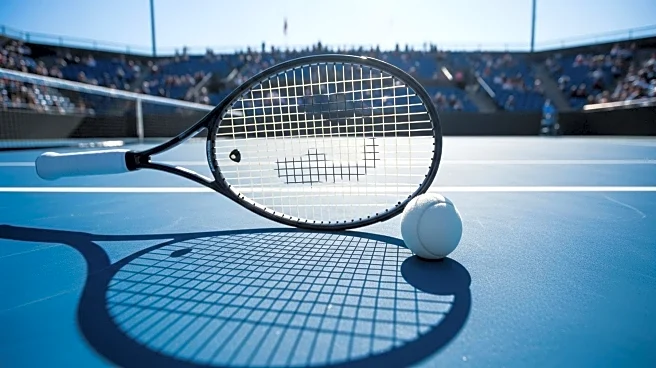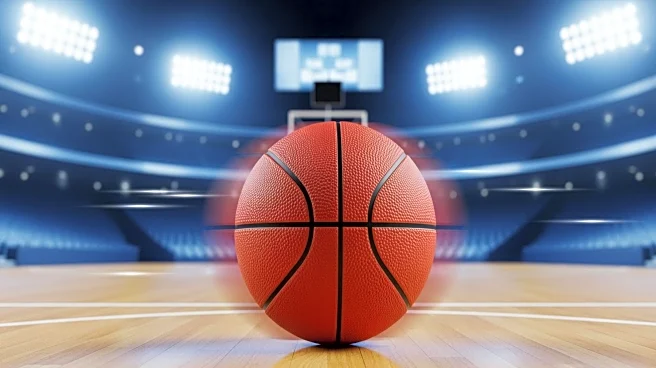What's Happening?
Alexander Bublik, currently ranked 24th in the world, recently commented on the performance of Italian tennis player Jannik Sinner, who is ranked No. 1 globally. Bublik described Sinner's gameplay as akin to an 'AI-generated player,' highlighting the Italian's exceptional skills. This remark followed Bublik's defeat to Sinner in the round of 16 at the 2025 US Open, where he lost with a score of 1–6, 1–6, 1–6. Sinner is set to face Lorenzo Musetti, a fellow Italian ranked 10th, in the quarterfinals. The US Open men's singles event is taking place from August 24 to September 7, with a total prize pool of $90 million. Jannik Sinner is the current titleholder of the tournament.
Why It's Important?
Jannik Sinner's performance and Bublik's comments underscore the competitive nature of the US Open and the high level of talent present in the tournament. Sinner's dominance in the match against Bublik reflects his standing as a top player in the world, which could influence his future matches and the dynamics of the tournament. The substantial prize money and the prestige of the US Open make it a significant event in the tennis calendar, attracting top players and considerable attention from fans and sponsors. Sinner's continued success could further elevate his career and impact the rankings in men's tennis.
What's Next?
As Jannik Sinner progresses to the quarterfinals, he will face Lorenzo Musetti, which promises to be a competitive match given Musetti's ranking and skills. The outcome of this match could have implications for Sinner's journey in the tournament and his potential to retain the title. Stakeholders such as sponsors, fans, and the tennis community will be closely watching these developments. Additionally, the tournament's progression will continue to shape the narratives around top players and emerging talents in the sport.
Beyond the Headlines
Bublik's comparison of Sinner to an 'AI-generated player' raises interesting discussions about the evolution of tennis and the increasing emphasis on precision and skill. This analogy may reflect broader trends in sports where technology and data analytics are becoming integral to training and performance enhancement. The comment also highlights the psychological aspects of competition, where players must navigate not only physical challenges but also perceptions and reputations.









